Dragon Quest V Will Never Die
Some stories are eternal
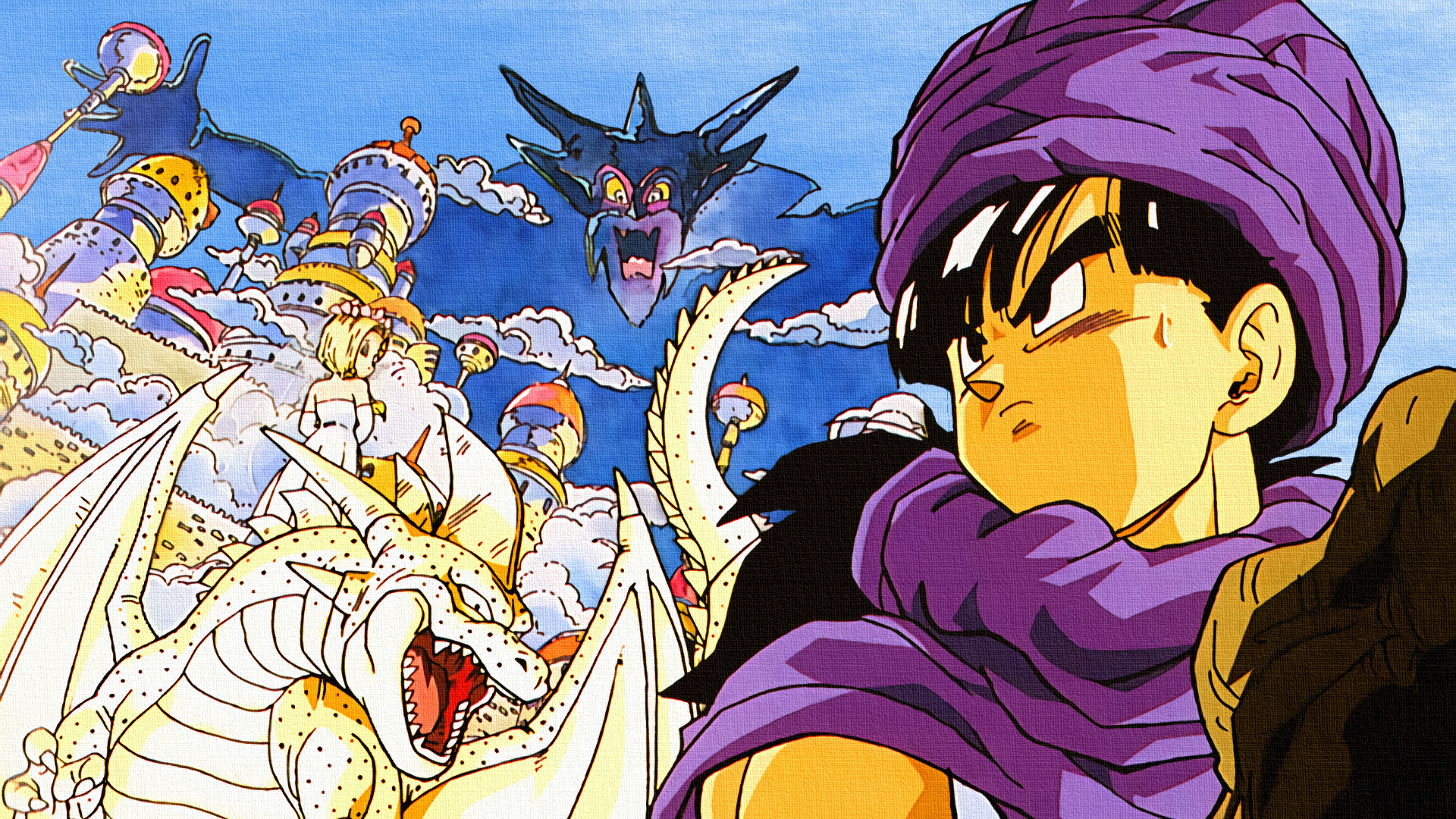
You don’t raise or see your children grow in Dragon Quest V. What happens is that you were turned to stone 8 years ago. Your statue form is sentient, however, and the game makes it very clear: you can’t move, but you feel the time passing and you can still see wherever people take you as an object. During this time, someone sells you as a simple ornamental statue in an auction house, and the buyer is a man married to a pregnant woman. Now you, as a statue, get to watch that couple’s child grow, throughout all of the unchosen days that you spend in his backyard. Your own children are being raised parentless somewhere else in the world and you are witnessing the formation of another being. The kid likes you, as a statue in his backyard. He enjoys playing around you.

Then the bad guys come and kidnap this boy (also before your eyes) to make him a slave. They were taking every child in that region, as a parallel to Moses, to try and find the Chosen One and get rid of him quickly. Since they didn’t know where exactly the chosen one would be born, every kid is a potential target. You, the protagonist, were also taken as a slave during the previous generation, at the start of the game, when you yourself were also a child. As a player and as a character, you can relate and imagine what would happen to the poor boy. Worse: God only knows if your own son and daughter weren’t also slaves. This mental anguish will only be quenched when you regain your flesh-and-blood form and eventually find your children again, seeing that they weren’t actually suffering and that they recognize you because they paid attention to the stories that the person who was taking care of them told. You take your kids and commence a new mission: finding your wife.
However, the issue here is that the kids didn’t gain a single level when they were away from you (is that social commentary? maybe!), so you need some bonding time together, trying to find weak monsters to grind a bit so they can survive the next couple of dungeons. It’s completely optional: you don’t even need to use the children in your party. You can use any monster you captured, equipped, and trained before the statue affair. I chose to raise my son and daughter anyway. I spent some hours running in circles in front of a town that had a cheap Inn, through an untold number of day and night cycles. I didn’t count the number of days and nights, neither did my 3DS, and I’m sure the Super Nintendo and the PlayStation 2 were of a similar opinion. After giving the kids enough time, stats, and levels, only then I was ready to try and find my wife.
We go through some normal JRPG adventures and when we get to the wife, we find out that she was a statue for ten years: two more than our eight. That means that it’s been two years since you found your kids. These two years will vary, conceptually, by the player’s actions – if they went straight to the next main quest, it means that traveling around the world takes two years. If the player, like me, chose to spend some time killing some monsters, then they spent two years killing monsters. The text will never change. It will always be two years.
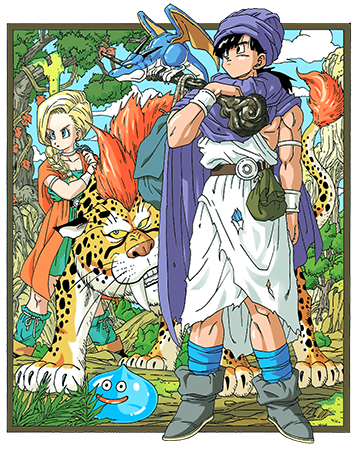
In German, the concept of developing maturity and growing as a person in literary works has a name: Bildungsroman. Said maturity comes in a myriad of ways, like it does in real life, but it’s basically when the character lives their (real or symbolic) teenage challenges and needs to confront pain and loss, which could also be real or symbolic, through the infinite ways art can convey those things. In English, it’s called “coming-of-age”, which is not exactly what is happening, because age is not directly related to that concept. Age is an aesthetic that is a close abstraction to maturing through those means, but it’s not exactly the point. If the fiction didn’t address how much time had passed and hadn't changed the protagonist’s sprite, the maturing would have occurred anyway. Dragon Quest V tells this story without the main character proffering a single word, and all of his signs of evolution are surfaced through our agency. He never ponders or says anything in order for us to know what his feelings are, but the game wants us to find our kids, so we can understand that this is the protagonist’s will. And so is ours, if we’re playing his story.
The story progression in a game is the purest way of understanding the will of a character, even if there’s no actual dialogue explaining it. Neither Sonic nor Mario tell us that they want to go from left to right, but this is the only option the game gives us most of the time, so it’s safe to say that both Sonic and Mario want to go right. They can stay put, unmoved until the time limit is over. We can spend ten minutes in that loop in Hill Top Zone that needs you to press down to break the ground, but we need to press said button at the correct time. Sonic needs you, there, to help him become a ball. It’s what he wants because it’s the only possible way.
In a similar vein, in Dragon Quest V, trying to find your son, daughter, and wife is what the main character wants to do because it’s the only way to develop the events that are going to happen until the story ends – but the will is also yours, and so is the urgency, and it doesn’t matter if you go directly to your wife or if you spend 40 hours gambling in the Casino; two years are going to pass between finding the kids and the wife.
Maybe someone counted how many days and nights should pass before finding your wife to strengthen the fiction, and maybe someone actually took that to heart and waited 730 in-game days before going after her. They were probably mistaken because no one knows how long a year is in that world. It’s better to believe than to try and outsmart.
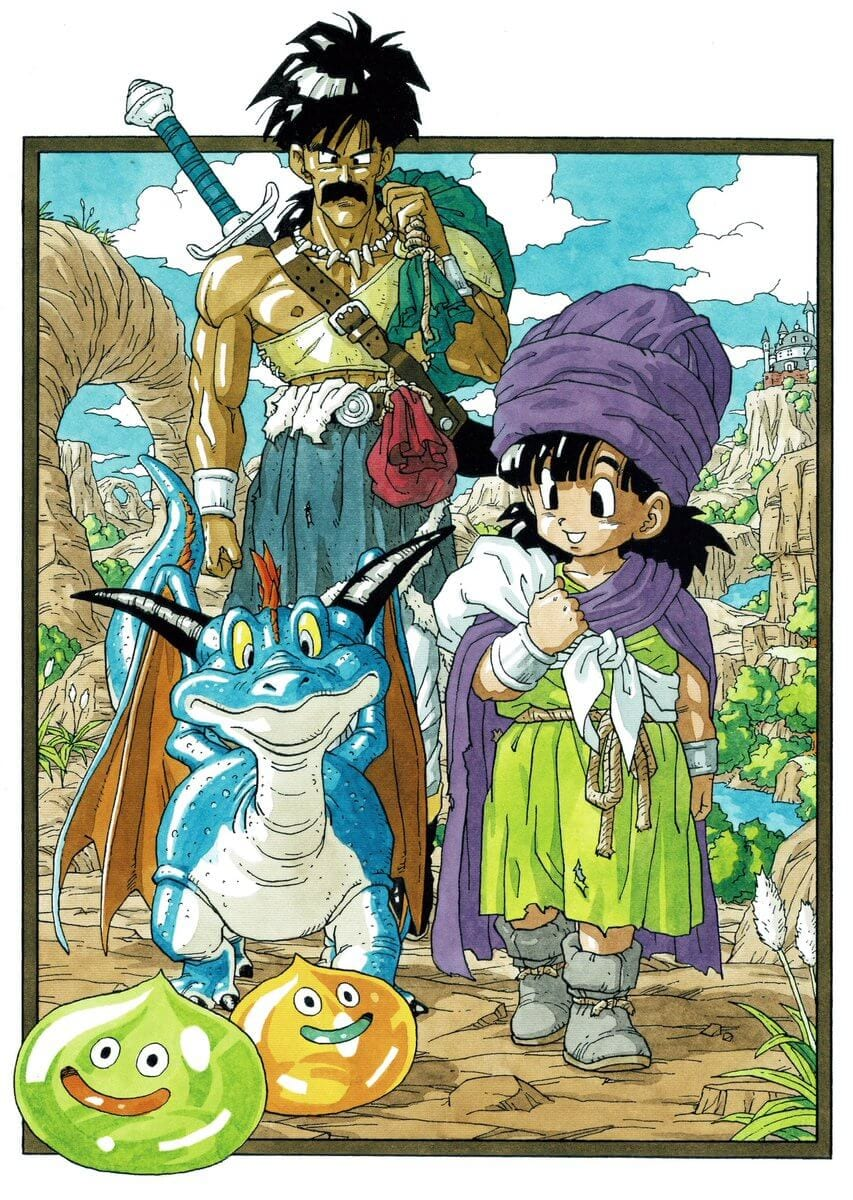
Before he becomes a father, the main character was also a son. During the first couple of hours of the game, your father heals you if your HP is low. His damage is also much higher than yours, but he never stops you from trying to hit monsters. We, as players, cannot control the main character’s father, and he cannot control you either – he defends you when you choose “attack”, but he never asks you to not do it. Then you find a friend that you like in a nearby town, you accompany her to a haunted castle to try and save a kitten, without your father. That’s when you learn how to heal, defend, and choose the correct things in the battle menu.
(When the main character becomes an adult, much later in the game, you can find that friend and the kitten again. You can marry her! And you can bring the kitten, now as big as a tiger, with your party, to fight alongside you.)
The allegory is clear: your dad takes care of you, but he doesn’t control you. He gives you tips and suggestions, but you can feel a Slime hitting your head as much as you can tolerate. Your father won’t take that pain away from you, but he will heal you afterwards. After two decades, when the protagonist has his own son, you find out that the son is actually the Main Character, because he is the Chosen One. This doesn’t undermine the protagonist’s importance, it actually strengthens it. It’s not your fate anymore, it’s your son’s, but you need to show him the way.

There’s a part in the game when you can fly around the world using a castle, and then, shortly after, using a dragon. The castle can only land in specific patches of land, and you can land it and leave it there forever, if you like the view. It is, of course, your home. The dragon, however, can fly endlessly in any given direction until you change it – like many JRPGs of that time, the world map is endless and loops when you reach a border, because it’s a round planet. You can leave the dragon flying for hours, if you leave your DS open, and he will never get tired.
The monsters that you can capture in the game are members of your party like any important human character: they learn new skills, they can use specific classes of equipment, they help you, heal you, they can give you buffs and receive debuffs. It’s not a very balanced system, but it’s not meant to be either. The chances of a monster joining your party increase every time you actually fight them in the field, and it’s a different success percentage for every species. You could even say it’s fully random if there were no sheets at GameFAQs giving you every detail and telling you that it’s good to start the game using a Slime Knight and end the game using a Golem, with a King Slime for good measure since it has group heals. Since it’s a very limited system, you can’t experiment a lot, but the important part is that you can finish the game using a party of your wife, kids, and some monsters in the back row, like family pets.
Dragon Quest V has a very clear theme, commenting about bonds that are timeless and familiar. The blood ties are important, but so is every creature that helps you without even being the same species. There aren’t any documented writing “techniques” to convey those themes, just predispositions. You can catch glimpses of it all around, without ever pointing at them.
Is that two year situation a literary mistake? Or is the mistake actually caused by those who didn’t wait?

There’s a museum in the DS version where you can store memorabilia. Some events give you small items without any practical use that you can display in the museum. It’s possible you won’t even find it and will then keep those memories in your own inventory, making the search for useful items a little more convoluted. You may not even realize they have no utility and try to use them randomly throughout the game. Or you can just store them in the museum, and show them to a loved one that is not playing the game with you, but would like to hear what happens in it.
When the whole party faints, we respawn at the church. The game jokes about it during the wedding scene: instead of “until death do us part”, the priest says “as long as we can be resurrected at church”.
Dragon Quest V will never die. There will always be, in some place, a cartridge or a memory card with a save file that still works, and the family of the Hero’s father will still be there, in that world whose time was frozen, waiting for someone to call them and, if needed, to resurrect them at church.
It’s been seven years since I wrote this article. It was written in Portuguese originally, to a now defunct SUPERJUMP-like project I had with some friends. I don’t have the same 3DS where I played the game for the first time anymore, but I still have some of those friends and the cartridge with the save file. Also another 3DS - a bigger one, as expected, since nothing stays the same after 7 years.
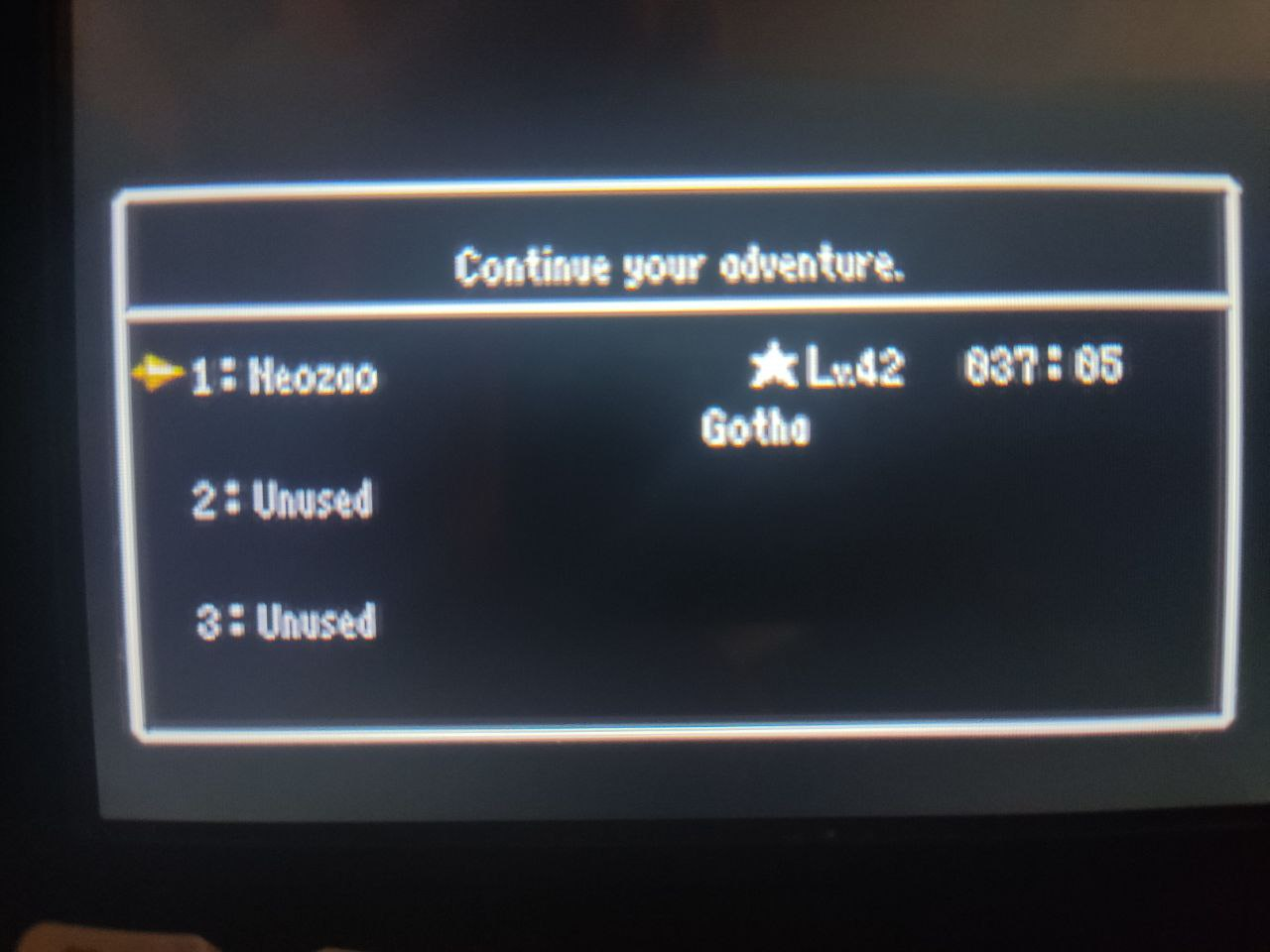
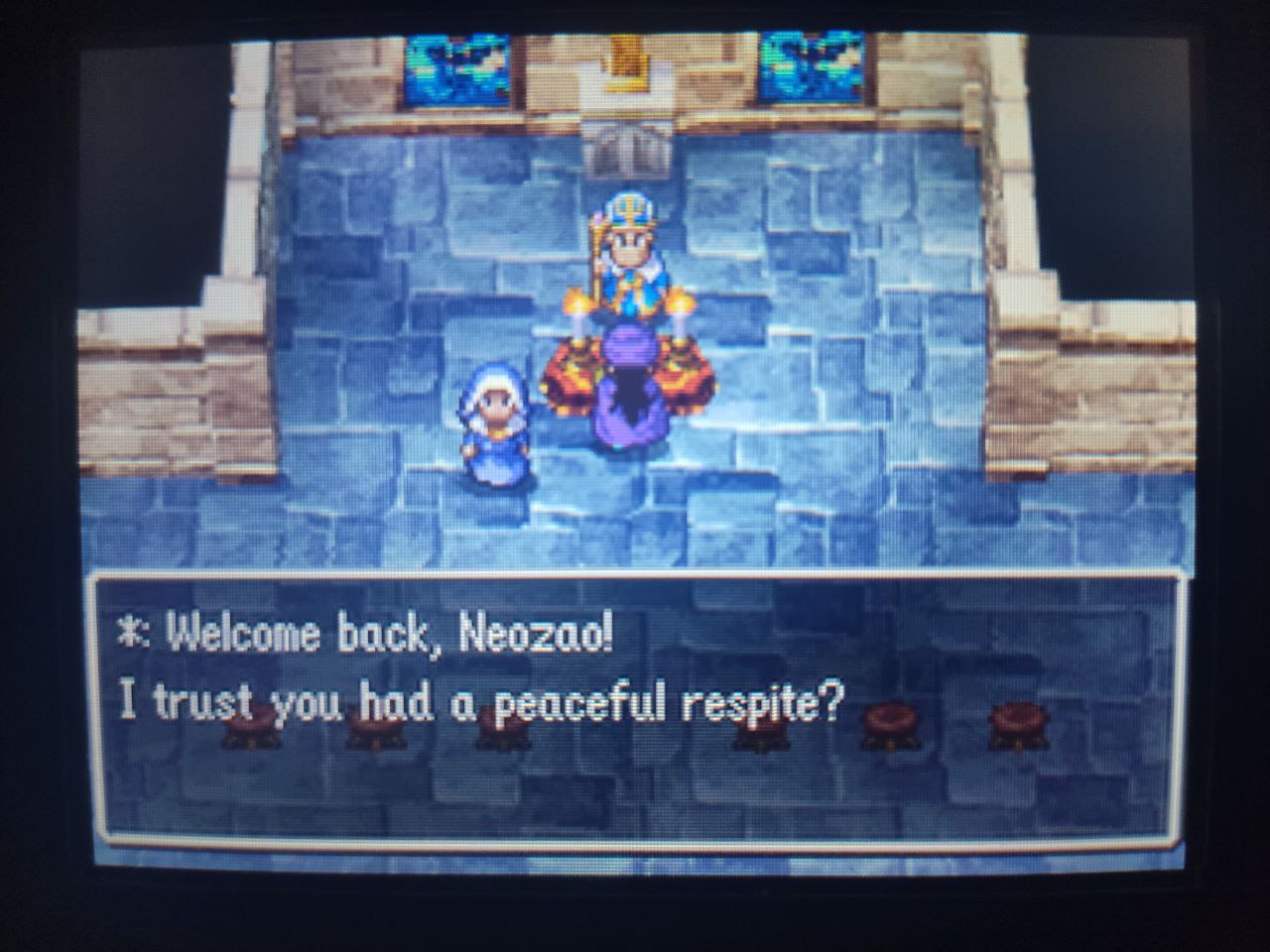
Seven years later, my own concept family is different, my values have changed, my interests are broader and my skills have been sharpened. The great thing about any artistic endeavor is that it changes with us and reflects our own values through an ever-adapting object that depends on our perspective, and anything that exists in Soren Kiekergaard's axis of time (e.g. music) and not just space (e.g. a statue), has this characteristic of adapting tenfold, in every single frame. It's a great thing that my Dragon Quest V save is still intact, but to truly understand what it may say to me now, I must choose New Game instead of loading the original one.
